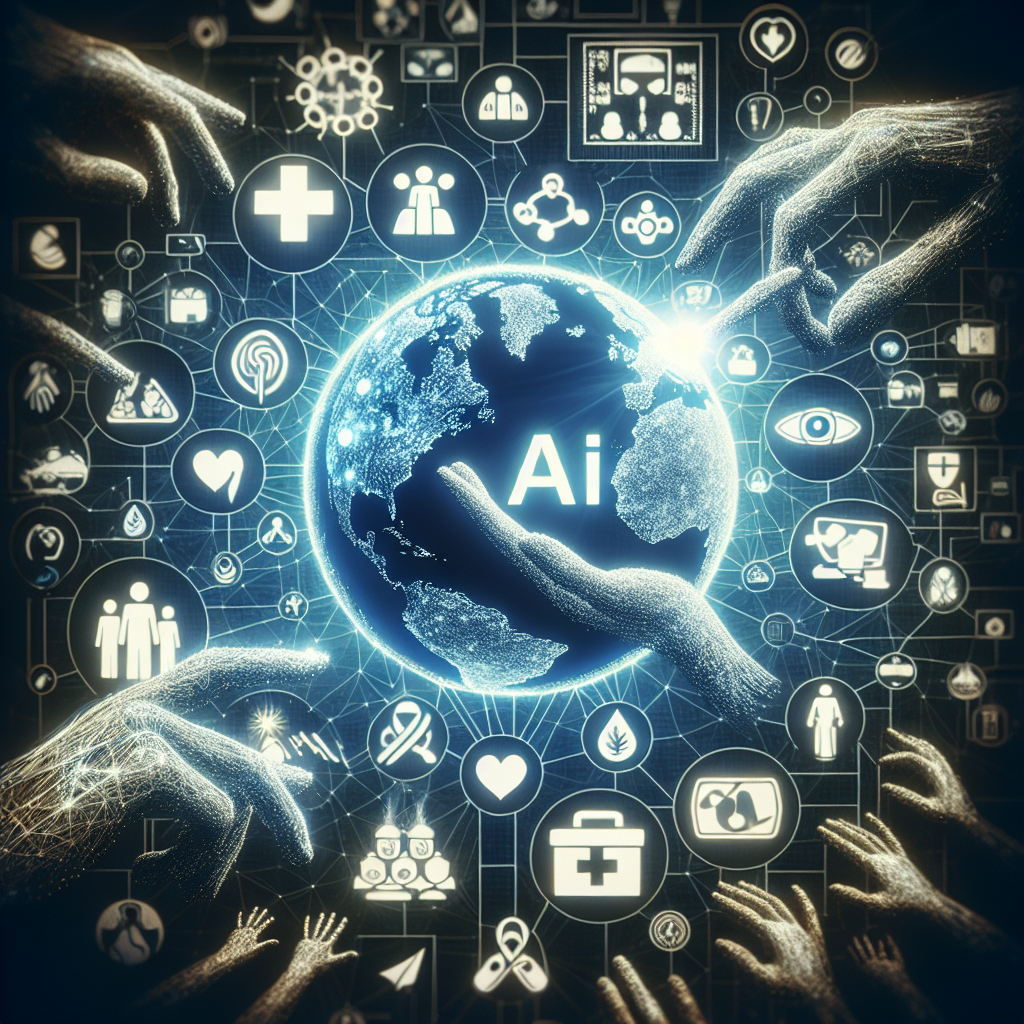The Ethics of AI in Humanitarian Assistance and Relief Efforts
Artificial intelligence (AI) has the potential to revolutionize the way humanitarian assistance and relief efforts are carried out around the world. From predicting natural disasters to optimizing the delivery of aid, AI can significantly improve the efficiency and effectiveness of humanitarian missions. However, as with any technology, there are ethical considerations that must be taken into account when using AI in humanitarian contexts. In this article, we will explore the ethical implications of AI in humanitarian assistance and relief efforts, as well as address some frequently asked questions on the topic.
Ethical Considerations
1. Privacy and Data Protection: One of the key ethical considerations when using AI in humanitarian assistance is the protection of personal data. AI systems often rely on large amounts of data to make predictions and decisions, which can include sensitive information about individuals in need of assistance. It is crucial that organizations collecting and using this data adhere to strict privacy and data protection regulations to ensure that the rights of those affected by disasters or conflicts are respected.
2. Bias and Discrimination: AI algorithms are only as good as the data they are trained on, and if that data is biased, the algorithm itself can perpetuate that bias. In humanitarian contexts, this can have serious consequences for vulnerable populations. For example, if an AI system is used to prioritize aid delivery based on certain criteria, such as income level or ethnicity, it could inadvertently discriminate against certain groups. Organizations must be vigilant in identifying and mitigating bias in their AI systems to ensure fair and equitable distribution of aid.
3. Accountability and Transparency: AI systems can be complex and opaque, making it difficult to understand how decisions are made and who is responsible for them. In humanitarian contexts, where the stakes are high and decisions can have life-or-death consequences, it is essential that organizations using AI in their operations are transparent about how their systems work and are held accountable for their decisions. This includes providing explanations for AI-generated recommendations and ensuring that there is human oversight of AI systems to prevent errors or misuse.
4. Informed Consent: In some cases, individuals affected by disasters or conflicts may not fully understand how their data is being used by AI systems or may not have the opportunity to consent to its collection and processing. Organizations must ensure that affected populations are informed about how their data is being used, obtain their consent where necessary, and provide mechanisms for individuals to opt out of data collection if they so choose.
5. Humanitarian Principles: AI should be used to complement, not replace, human decision-making in humanitarian assistance and relief efforts. Organizations must ensure that the use of AI aligns with core humanitarian principles, such as humanity, impartiality, neutrality, and independence, and that the ultimate goal remains to alleviate suffering and protect the dignity of all individuals affected by disasters or conflicts.
FAQs
1. Can AI replace human aid workers in humanitarian assistance?
No, AI should not replace human aid workers in humanitarian assistance. While AI can help streamline processes and improve the efficiency of aid delivery, the human element is essential in understanding the complex and nuanced needs of affected populations, building trust with communities, and providing compassionate and culturally sensitive assistance.
2. How can organizations ensure that AI systems are not biased against certain groups?
Organizations can take several steps to mitigate bias in their AI systems, including: conducting regular audits of data sources to identify and correct bias, involving diverse stakeholders in the design and testing of AI algorithms, and implementing fairness and transparency measures to ensure that decisions are made in a consistent and accountable manner.
3. What role can governments play in regulating the use of AI in humanitarian assistance?
Governments can play a crucial role in regulating the use of AI in humanitarian assistance by enacting laws and regulations that protect the privacy and data rights of affected populations, promoting transparency and accountability in the use of AI systems, and providing guidance and support to organizations using AI in their operations.
4. How can organizations ensure that affected populations are informed about the use of AI in humanitarian assistance?
Organizations can ensure that affected populations are informed about the use of AI in humanitarian assistance by: providing clear and accessible information about how AI systems work and how they are used in aid delivery, obtaining consent from individuals where necessary, and establishing mechanisms for individuals to opt out of data collection if they so choose.
5. What are some examples of successful uses of AI in humanitarian assistance and relief efforts?
Some examples of successful uses of AI in humanitarian assistance and relief efforts include: using satellite imagery and machine learning algorithms to predict and monitor natural disasters, using chatbots and AI-powered translation tools to provide information and support to affected populations in multiple languages, and using predictive analytics to optimize the distribution of aid resources in real-time.
In conclusion, AI has the potential to transform the way humanitarian assistance and relief efforts are carried out, but it is crucial that organizations using AI in their operations adhere to strict ethical principles to ensure that the rights and dignity of affected populations are protected. By addressing issues such as privacy, bias, transparency, informed consent, and adherence to humanitarian principles, organizations can harness the power of AI to improve the efficiency and effectiveness of their aid delivery while upholding the values of humanity and compassion.

